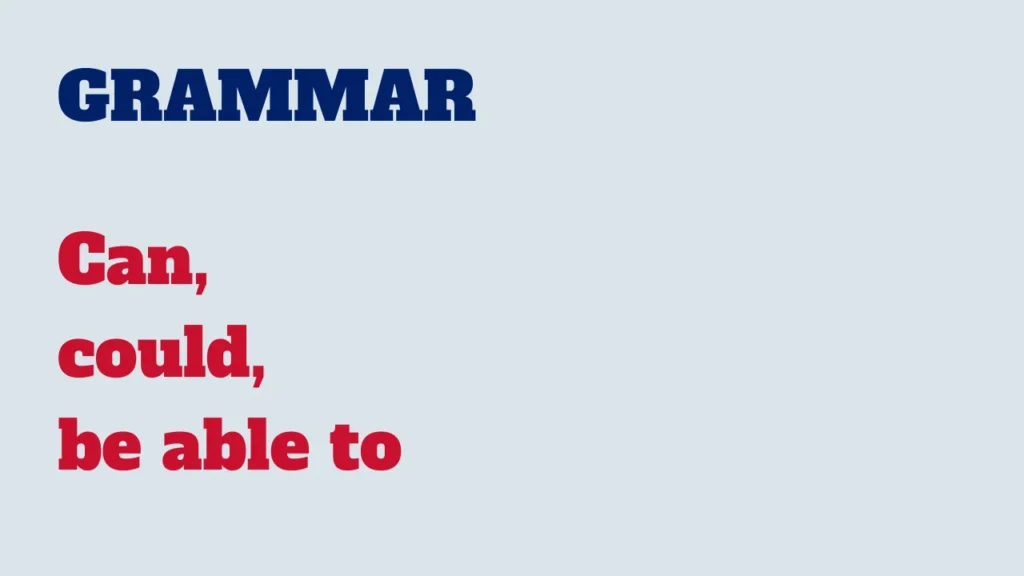The usage of “can,” “could,” and “be able to” plays a crucial role in expressing ability, permission, and possibilities in English.

This lesson will explore the distinctions between these expressions and provide insights into when to use each to convey precise meanings.
“Can”
Usage
“Can” is used to express present ability or capability, make requests, or seek permission.
Examples:
She can play the piano.
Can I borrow your umbrella?
Note:
“Can” is often informal and direct.
“Could”
Usage:
“Could” is the past tense of “can” and is used to express past ability, make polite requests, or indicate a possibility.
Examples:
When I was young, I could climb trees easily.
Could you please pass me the salt?
Note:
“Could” is also used for hypothetical situations and making offers.
“Be able To”
Usage:
“Be able to” is used to express general or specific ability in a more formal manner. It is also employed in contexts where “can” or “could” may seem inappropriate.
Examples:
She is able to speak five languages.
Will you be able to attend the meeting tomorrow?
Note:
“Be able to” is suitable for formal or professional settings.
Key differences
“Can” vs. “Could”:
“Can” is present tense, while “could” is past tense.
“Can” is used for general present ability, requests, and permission, while “could” is often used for past ability or polite requests.
Additionally, “can” suggests a high likelihood of occurrence, whereas “could” indicates a possibility that may or may not happen.
“Can” vs. “Be able to”:
“Can” is more casual and direct, while “be able to” is formal and precise.
“Could” vs. “Be able to”:
“Could” is used for past ability or politeness, while “be able to” can convey present, past, or future ability in a formal context.
“Can,” “could,” and “be able to” are powerful tools for expressing ability and making requests in English. By grasping their distinctions and recognizing suitable contexts for each, learners can enhance their communication skills and convey nuanced meanings effectively. Practice will reinforce your command of these expressions. Happy learning!



